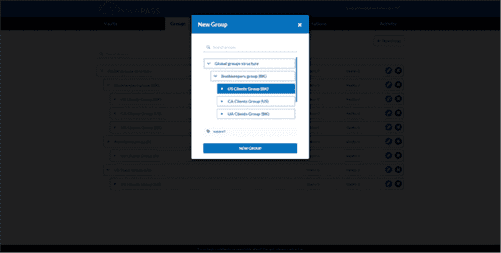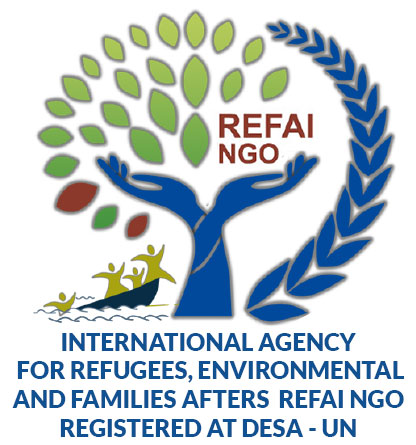Emotional Intelligence
While it’s important to understand and manage your own emotions, you also need to know how to read a room. Social awareness describes your ability to recognize others’ emotions and the dynamics in play within your organization. emotional breadcrumbs is defined as the ability to understand and manage your emotions, as well as recognize and influence the emotions of those around you. The term was first coined in 1990 by researchers John Mayer and Peter Salovey, but was later popularized by psychologist Daniel Goleman. The technical skills that helped secure your first promotion might not guarantee your next. If you aspire to be in a leadership role, there’s an emotional element you must consider.

The ability to interact well with others is another vital aspect of emotional intelligence. Solid social skills allow people to build meaningful relationships with others and develop a more robust understanding of themselves and others. Emotional intelligence also encompasses emotional control or regulation, which is the ability to monitor and modify one’s mood. People control their moods by seeking out ways to create particular feelings, whether positive or negative. Experiencing art or music, for example, may elicit joy, sadness, or melancholy. Emotionally intelligent individuals also can purposefully affect others’ emotional reactions positively or negatively.
The Truth About Emotional Intelligence
It is essential to approach stressful situations with a calm and positive attitude. Pressures can quickly escalate, primarily when people are operating under deadlines, so keeping steady and concentrating on finding a solution will help everyone complete their goals. People communicate verbally and nonverbally, so listening and monitoring for potentially positive and negative reactions is essential.
- That might mean taking a beat to process what happened by stepping away and thinking about the best way to respond both verbally and non-verbally.
- Self-report tests are the most common because they are the easiest to administer and score.
- This emotional intelligence skill doesn’t mean putting emotions on lockdown and hiding your true feelings—it simply means waiting for the right time and place to express them.
- If you’ve developed your social skills, you’re adept at working in teams.
- We use our intelligence to gather and retain knowledge and (hopefully) to put it to good use.
- In healthcare, there is a necessity to have influential leaders, a trusting environment with a helpful team, critical thinking, and quality patient and family-centered care.
Self-regulation is all about communicating one’s emotions appropriately in context. Intellectual ability or intelligence quotient (IQ) is not enough on its own to achieve success in life. Undoubtedly, IQ can help one get into university, but your Emotional Intelligence (EI) will help one manage stress and emotions when facing final exams. According to Psychology Today, only about 10 percent of people listen effectively.
In The Workplace
However, there’s a corresponding need for the uniquely human ability to work with and through others to accomplish important goals. Self-regulation deals with your ability not just to know your emotions, but to manage them. Is your ability to acknowledge your own emotions, recognize emotions in others and use that information to guide your behavior. Ideally, the most important ones leave you feeling content and connected. The other person may feel the same way you do—or have a completely different reaction.

Self-report tests are the most abundant because they are the quickest to administer and score. Respondents respond to questions or statements on such tests by rating their behaviors. But, the challenging task is to do these practices in real-time and consistently. It is a quality that is essential at every level of a person’s career, from university students looking for internships to seasoned workers hoping to take on a leadership role.
Why Emotional Intelligence Is Important in Leadership
Taking the time to hear others also demonstrates a level of respect that can form the basis for healthy relationships. This is not only an indication of egos taking over and a lack of consideration for others; these are also indications of there being a lack of emotional intelligence. Leaders proficient in empathy perform more than 40% higher in coaching, engaging others, and decision-making. In a different study, researchers found that leaders who show more empathy toward their co-workers and constructive criticism are viewed as better performers by their supervisors.

If you acknowledge your emotions and give yourself time to process them, you can carefully craft how you respond and avoid doing anything that could jeopardize the goodwill you’ve worked hard to build. However, using more empirical measures of self-awareness, the study found that only percent of the cohort was truly self-aware. Jamil Zaki, a Stanford professor and author of The War for Kindness, describes empathy as having three components – identifying what others feel, sharing this emotion, and wishing to improve their experience.
Having a higher level of emotional intelligence allows one to empathize with others, communicate effectively, and be both self and socially aware. How people respond to themselves and others impacts all types of environments. If you’re interested in diving deeper into emotional intelligence and enhancing your leadership capabilities, taking an online leadership course or training could be the best next step.

According to a 2020 research review, studies have also shown that EI can help students develop social relationships in school, which can positively impact their academic performance. EI refers to a person’s ability to recognize, understand, and manage their emotions as well as their ability to understand others’ emotions. If you’ve developed your social skills, you’re adept at working in teams. You’re aware of others and their needs in a conversation or conflict resolution. The dark side of emotional intelligence is using one’s understanding of emotions manipulatively, to deceive, control, or exploit others. Studies have shown that workers with higher scores on measures of EI also tend to be ranked higher on criteria of interpersonal functioning, leadership abilities, and stress management.
